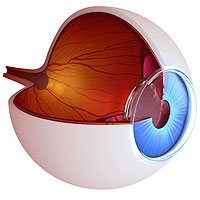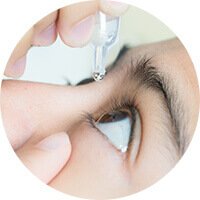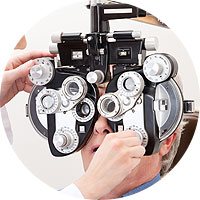
Cataracts come with many symptoms. Vision loss is, of course, the clearest and notable symptom of cataracts. You may also experience halos, colors fading, and difficulty seeing in low light.
As for pain, cataracts generally do not hurt, other than some sensitivity to light and glare. As cataracts develop, you may start experiencing other symptoms like inflammation and headaches. Keep reading to learn more about cataracts!
How Cataract Surgery Works
Cataracts grow in the lens of the eye. This isn’t something that happens overnight. Cataracts can take years or decades to develop! You may not notice them at first.
When you do, they’ll begin impacting your vision. This is because of the build-up of proteins in the lens of your eye clumping together. When you have cataract surgery, it involves removing the entire lens of the eye.
To do this, the surgeon opens up a flap in your cornea. You’ll receive numbing eye drops before the procedure, so you’ll never feel any pain.
When the flap is opened, the surgeon is able to break the lens apart. This is with either a laser or high-frequency sound waves.
The pieces of the lens are then removed, making room for a synthetic lens called an IOL that is then put in its place.
IOL is short for “intraocular lens”. These devices are made of silicone or acrylic, so they are very durable. They come in a variety of types, including premium options.
These premium IOLs can often get rid of your need for glasses after surgery.
When the IOL is in place, the flap in your cornea is closed. This doesn’t need stitches, as the tissue attaches itself.
Immediately following surgery, you will need to rest for some time before you can go home. You will also not be able to drive yourself home, so make sure to have a ride lined up.
Recovery
Recovering from cataract surgery is pretty straightforward. You will need to be careful with your eyes over the course of several months, as they will be more fragile.
During the first couple of weeks, you should refrain from performing strenuous exercises. During the first few days, you should even be careful about bending over.
The increased eye pressure could cause complications with your corneal flap. You should also refrain from doing things that will risk getting water in your eyes.
This means no swimming and avoiding hot tubs! Water is a place that can harbor bacteria and cause an infection. Showering is fine, as long as you do your best to keep your eyes closed.
Over the course of your recovery, you will slowly be able to add more and more back int your routine. During your cataract screening, you can get a more detailed timeline.
The main thing to remember as you recover after cataract surgery is to relax. Your body needs time to recover! Use this as a time to take it easy.
Have more questions about what you can expect from cataract surgery? Schedule a cataract screening with Eye Care Specialists in Wilkes-Barre, PA today!

















